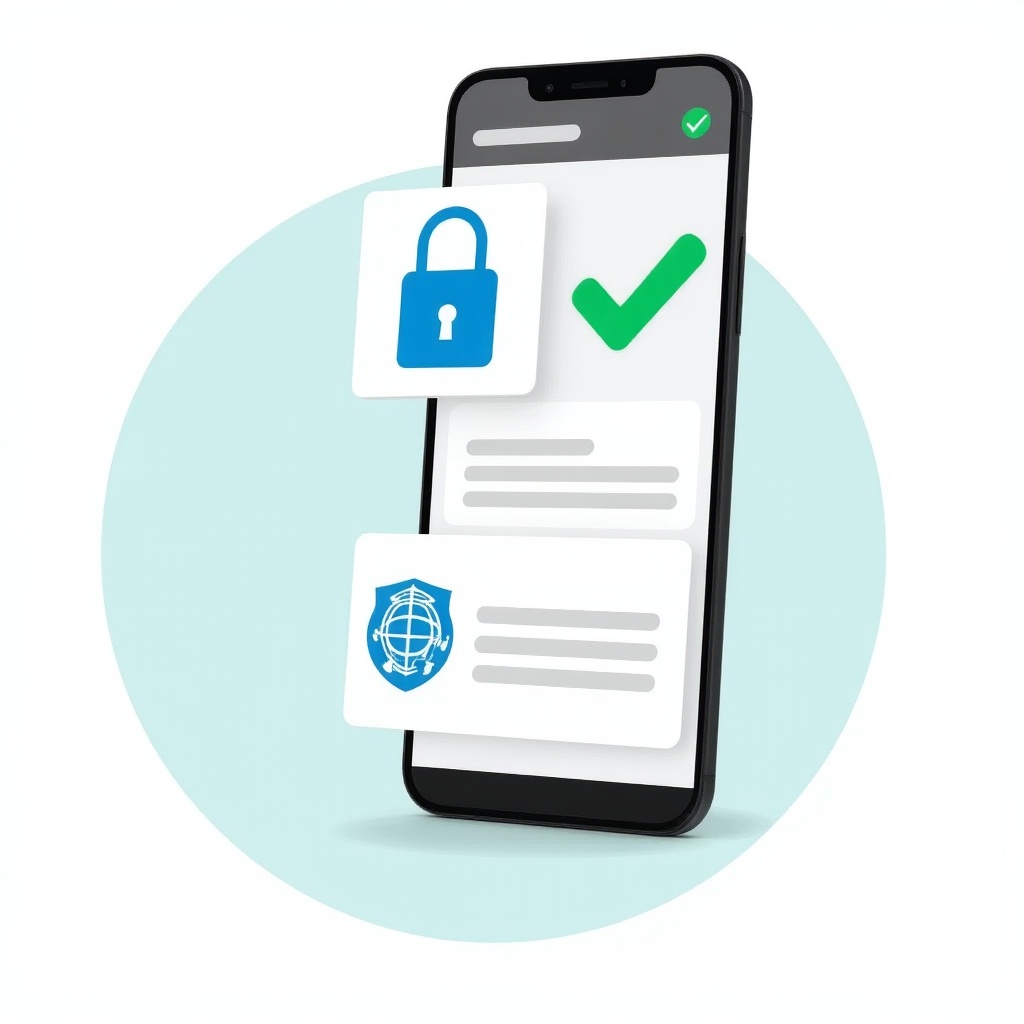-
How to Choose a Secure Mobile App: Your Complete Security Checklist

In today's digital landscape, mobile applications have become integral to our daily lives, handling everything from banking transactions to cryptocurrency wallets. With cyber threats evolving constantly, choosing a secure mobile app is no longer optional—it's essential for protecting your personal data, financial information, and digital assets.
Whether you're selecting a crypto wallet, financial management tool, or any tech application, understanding security fundamentals can mean the difference between safe usage and catastrophic data breaches. This guide will walk you through the critical factors to consider when evaluating mobile app security.
Understanding Mobile App Security Fundamentals
Before downloading any application, it's crucial to understand what makes a mobile app secure. Security isn't just about encryption—it encompasses multiple layers of protection that work together to safeguard your information.
A truly secure mobile application implements robust authentication mechanisms, encrypts data both in transit and at rest, follows secure coding practices, and receives regular security updates. For crypto and tech users, these features become even more critical as you're often managing valuable digital assets and sensitive information.
Key Security Features to Look For
Strong Authentication Methods
The first line of defense in any secure mobile app is its authentication system. Look for applications that offer multi-factor authentication (MFA) beyond simple passwords. Biometric authentication options like fingerprint scanning or facial recognition add an extra security layer that's difficult for attackers to bypass.
For cryptocurrency apps specifically, hardware wallet integration and transaction signing mechanisms provide additional security. Never settle for apps that only offer basic password protection, especially when dealing with financial or sensitive data.
Data Encryption Standards
Encryption is the backbone of mobile app security. Verify that your chosen app uses industry-standard encryption protocols. End-to-end encryption ensures that your data remains private from the moment it leaves your device until it reaches its destination.
Check whether the app encrypts data stored locally on your device as well. This protects your information even if your phone is lost or stolen. For tech-savvy users, reviewing the app's security documentation or white paper can provide insights into their encryption implementation.

Evaluating App Permissions and Privacy
Permission Requests
A secure app requests only the permissions necessary for its core functionality. Be wary of applications that demand excessive access to your contacts, camera, microphone, or location data without clear justification.
Before installation, carefully review the permission list. Ask yourself whether each permission makes sense for the app's stated purpose. A simple calculator app, for instance, has no legitimate reason to access your contacts or location.
Privacy Policy Transparency
Reputable apps provide clear, comprehensive privacy policies that explain how your data is collected, used, and protected. While privacy policies can be lengthy, taking time to understand the key points is worthwhile—especially sections covering data sharing with third parties and data retention practices.
For crypto applications, verify whether the app follows Know Your Customer (KYC) requirements appropriately and how they handle your personal identification information.
Researching Developer Reputation and Track Record
The organization or individual behind an app significantly impacts its security. Established developers with proven track records typically invest more resources in security measures and regular updates.
Research the development team's history, read user reviews focusing on security concerns, and check whether the app has experienced any security incidents in the past. How developers respond to security vulnerabilities speaks volumes about their commitment to user safety.
Update Frequency and Support
Regular updates indicate active development and security maintenance. Check the app's update history in your device's app store. Applications that haven't been updated in several months may contain unpatched security vulnerabilities.
Additionally, verify that the developer provides responsive customer support. The ability to quickly report and receive responses about security concerns is invaluable.
Technical Security Indicators
Code Signing and Certificates
Legitimate apps are digitally signed by their developers, which you can verify through your device's app store. This signature ensures the app hasn't been tampered with since publication. Avoid sideloading apps from unofficial sources, as they may lack these critical security verifications.
Open Source Advantage
For technically inclined users, open-source applications offer unique security benefits. The transparent codebase allows security researchers and the community to identify and report vulnerabilities. Many reputable crypto wallets and security tools are open-source for this reason.
However, open-source doesn't automatically guarantee security—the project should have an active community and regular security audits conducted by reputable firms.
Red Flags to Avoid
Certain warning signs should immediately raise concerns about an app's security. These include:
- Requests for unnecessary permissions or sensitive information
- Poor user reviews mentioning security issues or suspicious behavior
- Lack of clear contact information or privacy policy
- Promises that seem too good to be true, especially in crypto apps
- Pressure to make quick decisions or disable security features
- No HTTPS implementation for web-based components
- Absence of two-factor authentication options for sensitive apps
Making Your Final Decision
Choosing a secure mobile app requires balancing functionality with security. While no app is 100% secure, following these guidelines significantly reduces your risk exposure. Start by clearly defining what you need the app to do, then systematically evaluate candidates against the security criteria outlined above.
For crypto and tech applications, consider consulting community forums and expert reviews before making your final choice. The extra time invested in research pays dividends in protecting your digital assets and personal information from increasingly sophisticated threats.
Remember that security is an ongoing process, not a one-time decision. Even after selecting a secure app, stay vigilant about updates, monitor your accounts for unusual activity, and remain informed about emerging security threats in the mobile ecosystem.